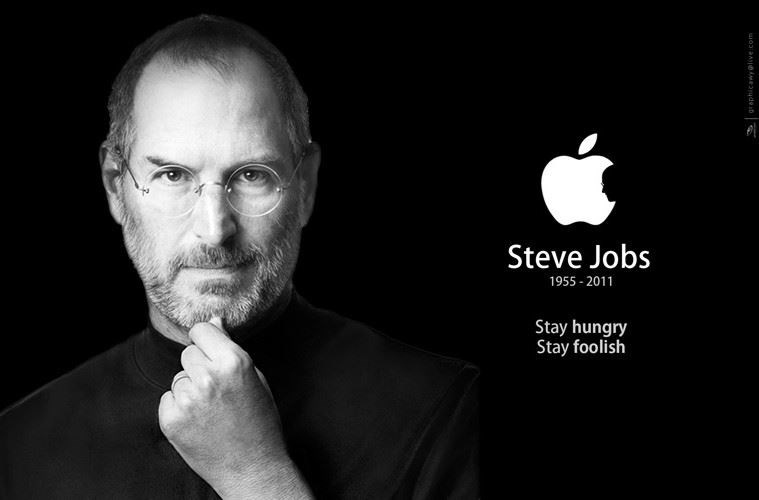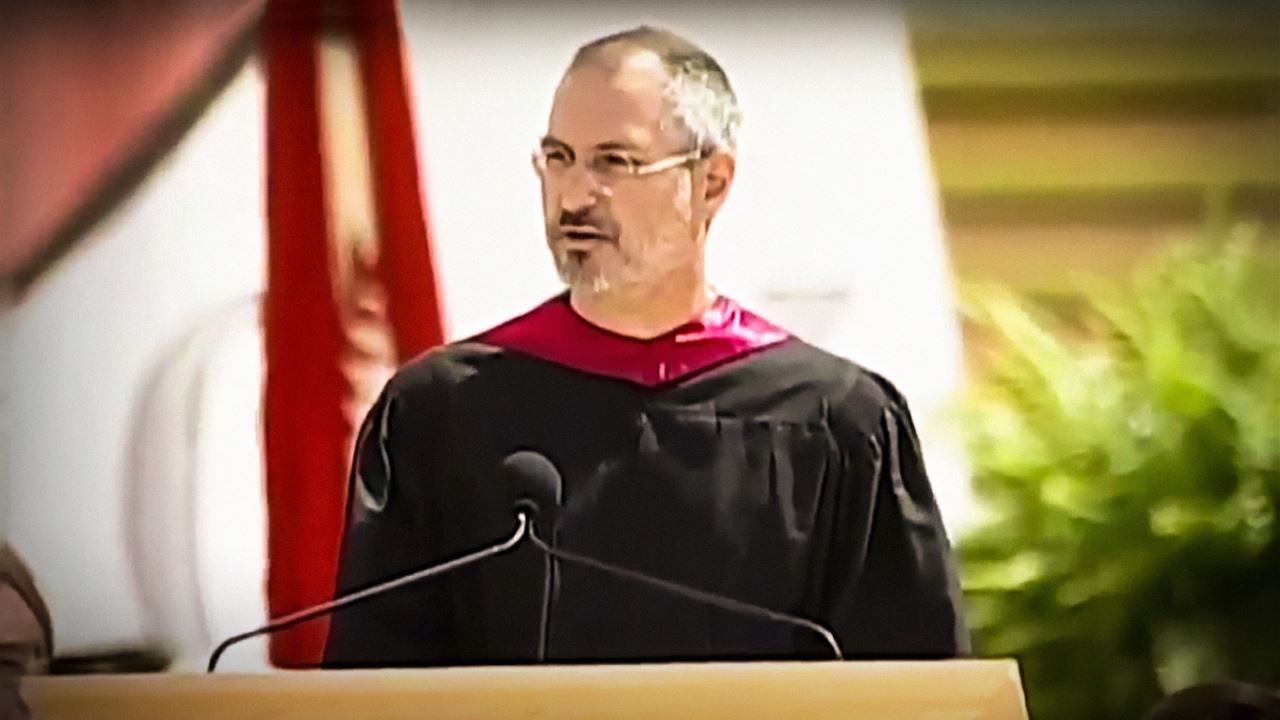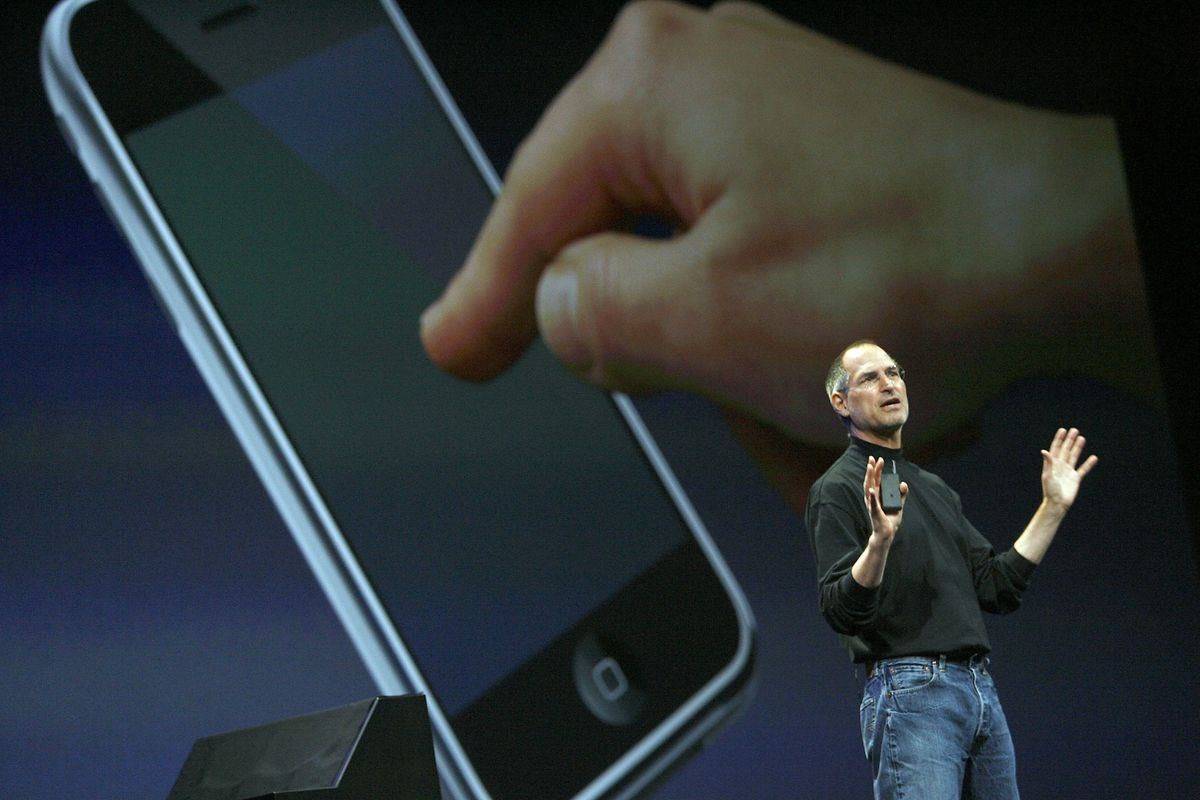 Steve Jobs DIY Genius“The ones who are crazy enough to think that they can change the world are the ones who do” (Steve Jobs). Steve Jobs lived by this modus operandi. His goal, especially in business, was to do what has never been done before, which led to the creation of the Mac, iPod, and iPhone. Many people thought that Jobs would never impact the world, yet he proved them wrong. Jobs was the definition of heroism. Heroism can be defined by doing great things, like changing the world, or choosing the right choice when given the opportunity. In today’s culture, heroism is shown from young children, to teenagers, and to adults. A young child can decide to invite a random kid to lunch at school, a teenager can say no to drugs, and an adult can work hard to support their family; these are all acts of heroism. A person does not need a situation to define themselves as a hero, they just need to make a correct and rightful decision. Heroism cannot be defined by the number of times the hero helped someone or by the number of people they helped. Helping someone once shows true character and heart. A hero is someone who has the determination to push past the obstacles put in their way and enough courage to make decisions when the going gets tough.
Steve Jobs DIY Genius“The ones who are crazy enough to think that they can change the world are the ones who do” (Steve Jobs). Steve Jobs lived by this modus operandi. His goal, especially in business, was to do what has never been done before, which led to the creation of the Mac, iPod, and iPhone. Many people thought that Jobs would never impact the world, yet he proved them wrong. Jobs was the definition of heroism. Heroism can be defined by doing great things, like changing the world, or choosing the right choice when given the opportunity. In today’s culture, heroism is shown from young children, to teenagers, and to adults. A young child can decide to invite a random kid to lunch at school, a teenager can say no to drugs, and an adult can work hard to support their family; these are all acts of heroism. A person does not need a situation to define themselves as a hero, they just need to make a correct and rightful decision. Heroism cannot be defined by the number of times the hero helped someone or by the number of people they helped. Helping someone once shows true character and heart. A hero is someone who has the determination to push past the obstacles put in their way and enough courage to make decisions when the going gets tough.
Steve Jobs showed the characteristics of a hero when he pushed through many challenging and heartbreaking obstacles. Steve Jobs was born on February 24, 1955, in California to Abdulfattah Jandali and Joanne Schieble Jandali Simpson, his biological parents, but was soon adopted by Paul Jobs and Clara Hagopian. Jobs’ biological parents wanted his new parents to be educated and have a college degree, but it did not end up that way. He was adopted by two people who did not have a college degree and could barely support themselves, let alone a child who needed to go to college. Due to his adoption, Jobs felt alone. In elementary school, Jobs believed that the curriculum was too easy, so he was a prankster. Because of this, Jobs’ fourth-grade teacher had to bribe him to make him do his work. That same year, he tested at a high school level and moved to sixth grade, where he felt like a loner. After high school, Jobs’ parents ended up being able to support him through college so, he went to Reed College. After 6 months, Jobs dropped out after he realized that it was not worth his time or his parents’ money. At age 20, Jobs and Stephen Wozniak created Apple out of Jobs’ garage. But in 1985, Wozniak resigned and Jobs was demoted and was soon fired from Apple. Jobs then created the computer company NeXT, which would be in the education business, and Pixar, which would become an animation company. Apple began to struggle, which resulted in Jobs being rehired and Apple buying NeXT. Jobs married Laurene Powell in 1991 and had three kids with her. Jobs died on October 5, 2011, after fighting a long war with pancreatic cancer. A hero must possess determination and courage. Determination is having a certain purpose or goal and always striving to achieve that goal. Courage is the ability to make decisions that involve great risks, but not considering those risks. Using his determination, Steve Jobs courageously navigated his professional career and changed the world.
 Steve Jobs at speaking at StanfordTED.comSteve Jobs faced many difficult obstacles, but with determination, he advanced showing others that they should persevere. Jobs was a hard worker, which sometimes caused family problems and lead to health problems. After being diagnosed, Jobs decided to keep the new- found cancer to himself so it would not impact his work: “Jobs kept his continuing battle with the cancer secret—he told everyone that he had been “cured”—just as he had kept quiet about his diagnosis in October 2003” (Isaacson 456). Jobs made the decision to continue work even though he had cancer. By telling others that he was cured, it allowed him to return to his job as normal. A majority of people would use cancer as a possible excuse to stop work, but Jobs was determined to change the world. To accomplish that goal, he had to put cancer to the side and not let it stop him from working and living his life the way he wanted to. Jobs’ perseverance pushed him to continue working and running his companies. Apple was growing rapidly, which caused Jobs to hire a conventional CEO who later fired Jobs. Years after Jobs was fired, he reflected on what has happened in his life after the event during a commencement speech at Stanford University: “During the next five years, I started a company named NeXT, another company named Pixar, and fell in love with an amazing woman who would become my wife” (Stanford University). Jobs is regarded by many as one of the greatest businessmen to ever live, so after creating one successful company, Jobs had to continue entrepreneurial. Jobs would not let one negative event stop him from accomplishing his goal so he continued to create companies that would change the world. Because Jobs continued to create companies, he was able to return as CEO to Apple. He made a decision to continue his entrepreneurship, which showed that giving up after failure is not acceptable. Jobs was determined, which was shown through his perseverance after negative events.
Steve Jobs at speaking at StanfordTED.comSteve Jobs faced many difficult obstacles, but with determination, he advanced showing others that they should persevere. Jobs was a hard worker, which sometimes caused family problems and lead to health problems. After being diagnosed, Jobs decided to keep the new- found cancer to himself so it would not impact his work: “Jobs kept his continuing battle with the cancer secret—he told everyone that he had been “cured”—just as he had kept quiet about his diagnosis in October 2003” (Isaacson 456). Jobs made the decision to continue work even though he had cancer. By telling others that he was cured, it allowed him to return to his job as normal. A majority of people would use cancer as a possible excuse to stop work, but Jobs was determined to change the world. To accomplish that goal, he had to put cancer to the side and not let it stop him from working and living his life the way he wanted to. Jobs’ perseverance pushed him to continue working and running his companies. Apple was growing rapidly, which caused Jobs to hire a conventional CEO who later fired Jobs. Years after Jobs was fired, he reflected on what has happened in his life after the event during a commencement speech at Stanford University: “During the next five years, I started a company named NeXT, another company named Pixar, and fell in love with an amazing woman who would become my wife” (Stanford University). Jobs is regarded by many as one of the greatest businessmen to ever live, so after creating one successful company, Jobs had to continue entrepreneurial. Jobs would not let one negative event stop him from accomplishing his goal so he continued to create companies that would change the world. Because Jobs continued to create companies, he was able to return as CEO to Apple. He made a decision to continue his entrepreneurship, which showed that giving up after failure is not acceptable. Jobs was determined, which was shown through his perseverance after negative events.
Steve Jobs teaches others that one must have the courage to make perilous decisions to advance in their career and succeed. After being tested by his fourth-grade teacher, Jobs was able to skip a grade and move up to sixth: “The transition was wrenching. He was a socially awkward loner who found himself with kids a year older. Worse yet, the sixth grade was in a different school, Crittenden Middle” (Isaacson 14). Steve Jobs understood what he was about to endure, a hard and “wrenching” challenge, but he showed courage by continuing with his higher education. Jobs’ decision resulted in a better academic level for him, but it negatively affected his social life. Even though he knew things would most likely not change, Jobs followed through with his decision, showing audacity even though he knew that it could end badly for him in the short term. This decision helped Jobs advance through high school at a faster pace because he was able to learn new information. With the knowledge of someone years older than himself, Jobs was able to create companies and inventions while he was young. Jobs’ prowess was shown when he decided to take a risk that would put his wealth and status at risk: “Believing in Pixar's potential, Jobs initially invested $50 million of his own money in the company” (“Steve Jobs Biography”). In 1986, when Pixar was just a computer division owned by Lucasfilms, Jobs took a chance on buying it. Jobs also invested $50 million into this new company, which was a risky decision because his money could have been poorly used or started a multi- million dollar business. Jobs had the courage to make an uncertain decision when he knew that there was a chance it would not pay off. This decision led Jobs to creating a successful animation company, which made him very wealthy. If Jobs had not made that brave decision, he would not have been able to change the film industry. Steve Jobs was courageous, which was shown through his risky, yet intelligent, decisions.
 Steve Jobs unveil the first iPhonerecodeSteve Jobs has pushed through many obstacles with determination and courage, encouraging others to do the same. When Jobs was fired from Apple, he did not let that stop him from changing the world, he was determined to do so, which led to the creation of NeXT and Pixar. Jobs had continuously put his own personal health to the side so that he could work. After being diagnosed with cancer, Jobs continued to work even though his job could have led to cancer in the first place. Steve Jobs had also faced many challenges throughout his professional and personal life. He has gone through life with the mindset of knowing that only the people who think different are the ones who can change the world. Jobs inspires others because he does not let anything interfere with his goals. When Steve Jobs was diagnosed with pancreatic cancer, he did not stop working, he just changed a few aspects of his life and went back to Apple. Jobs shows others that they can not let things stop them from accomplishing their dreams and goals. In Jobs’ commencement speech at Stanford, he reflected on his path of creating Apple and what it took to create it: “I was lucky — I found what I loved to do early in life. Woz and I started Apple in my parents’ garage when I was 20. We worked hard, and in 10 years Apple had grown from just the two of us in a garage into a $2 billion company with over 4,000 employees” (Stanford University). Jobs was an embodiment of the American dream, he started with little in life and pushed through to become successful. He knew what he loved and what he was good at, and stuck with it. Jobs never stopped working hard until he achieved what he sat out to do. He shows that through determination and courage, anyone can accomplish anything. Steve Jobs has shown me that anything is truly impossible. After learning about the challenges and difficulties Jobs went through, and how he still succeeded inspires me to do great things with my own life. Jobs truly took everything he could out of life, and he has motivated me to do the same. I no longer will waste time on things that will not benefit me, I must end each day knowing that I have done everything I could. Like Jobs, I want to be able to use time to my advantage and to not think about it as something we can not control. Jobs showed me that you do not need to be from a successful or rich family to succeed, you just need to have the drive to work. Jobs inspires others to be crazy, determined, and courageous because those are the ones who change the world.
Steve Jobs unveil the first iPhonerecodeSteve Jobs has pushed through many obstacles with determination and courage, encouraging others to do the same. When Jobs was fired from Apple, he did not let that stop him from changing the world, he was determined to do so, which led to the creation of NeXT and Pixar. Jobs had continuously put his own personal health to the side so that he could work. After being diagnosed with cancer, Jobs continued to work even though his job could have led to cancer in the first place. Steve Jobs had also faced many challenges throughout his professional and personal life. He has gone through life with the mindset of knowing that only the people who think different are the ones who can change the world. Jobs inspires others because he does not let anything interfere with his goals. When Steve Jobs was diagnosed with pancreatic cancer, he did not stop working, he just changed a few aspects of his life and went back to Apple. Jobs shows others that they can not let things stop them from accomplishing their dreams and goals. In Jobs’ commencement speech at Stanford, he reflected on his path of creating Apple and what it took to create it: “I was lucky — I found what I loved to do early in life. Woz and I started Apple in my parents’ garage when I was 20. We worked hard, and in 10 years Apple had grown from just the two of us in a garage into a $2 billion company with over 4,000 employees” (Stanford University). Jobs was an embodiment of the American dream, he started with little in life and pushed through to become successful. He knew what he loved and what he was good at, and stuck with it. Jobs never stopped working hard until he achieved what he sat out to do. He shows that through determination and courage, anyone can accomplish anything. Steve Jobs has shown me that anything is truly impossible. After learning about the challenges and difficulties Jobs went through, and how he still succeeded inspires me to do great things with my own life. Jobs truly took everything he could out of life, and he has motivated me to do the same. I no longer will waste time on things that will not benefit me, I must end each day knowing that I have done everything I could. Like Jobs, I want to be able to use time to my advantage and to not think about it as something we can not control. Jobs showed me that you do not need to be from a successful or rich family to succeed, you just need to have the drive to work. Jobs inspires others to be crazy, determined, and courageous because those are the ones who change the world.
Works Consulted
Isaacson, Walter. Steve Jobs. Abacus, 2015.
Stanford University. “Text of Steve Jobs' Commencement Address (2005).” Stanford News,
Stanford, 12 June 2017, news.stanford.edu/2005/06/14/jobs-06150
“Steve Jobs Biography.” Biography.com, A&E Networks Television, 6 Nov. 2017,
www.biography.com/people/steve-jobs-9354805.
"Steven Paul Jobs." Notable Scientists from 1900 to the Present, edited by Brigham Narins, Gale,
2008. Biography In Context, https://link.galegroup.com/apps/doc/K1619002098/BIC?u=powa9245&sid=BIC&xid=07e5cd43. Accessed 13 Apr. 2018
Page created on 5/29/2018 3:59:37 AM
Last edited 5/30/2018 12:46:59 AM
